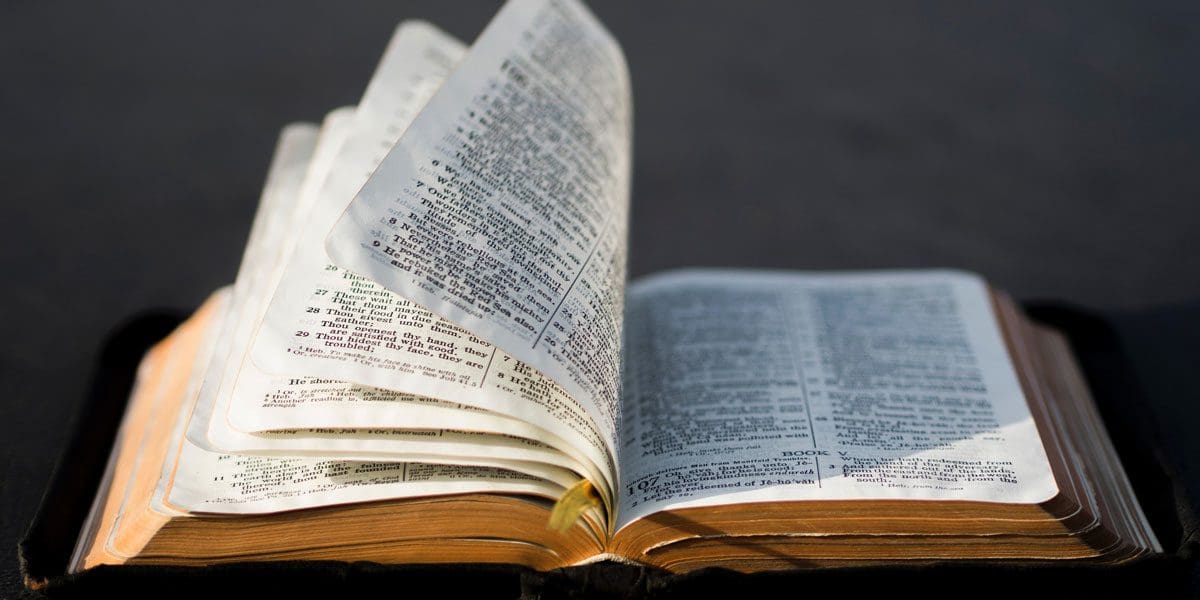Yet the number of the children of Israel shall be like the sand of the sea, which cannot be measured or numbered. And in the place where it was said to them, “You are not my people,” it shall be said to them, “Children of the living God” (Hos. 1:10).
In 1920’s America, everything looked pretty good. America was enjoying a booming economy and social progress, and the landscape of the country was predominantly Christian. People were living lives of luxury and ease. This was the pinnacle of the American dream. However, under the surface was a disaster waiting to strike… and it did. The economy collapsed, the greed of the people was exposed, and the country entered one of its darkest periods.
This picture of American culture is similar to the time in which Hosea lived. Israel and Judah were experiencing great wealth, military safety, and apparent religious devotion to the Lord. Yet, the people’s religion was shallow and devoid of true commitment to God. They had refused to acknowledge God as their one true God, and their land was plagued with murder, cursing, stealing, and lying (Hos. 4:1-2). They also had taken up Canaanite idol worship to Baal (Hos. 2:8). As their prosperity began to fade, they turned to other countries, namely Assyria, for help—an action that was forbidden and adulterous according to Mosaic law.
Into the middle of this mess stepped Hosea, a prophet from the Lord. God directed Hosea in a peculiar way by asking him to marry a woman who would be unfaithful. Why would God call one of his faithful servants to such a painful task?
God would use Hosea and Gomer’s story to convict the people of Israel of their unfaithfulness to the Lord. Sometimes God also calls us to painful situations, not because of sin but in order to use our stories to magnify His glory and sovereign purpose in the world. By faith, Hosea submitted to God, married Gomer, and had three children with her. The lives of Hosea’s children foreshadowed the relationship between Israel and God and teach us important truths about how we relate to the Lord today.
The Bad News
1. Jezreel
Jezreel means “scattered.” His life indicates God’s loving-kindness in disciplining those he loves. Israel was unfaithful, and God declared that he would scatter them all over the earth. This should not have come as a surprise to Israel. God’s covenant required them to worship Him alone or be scattered from their land and “utterly destroyed” (Deut. 4:25-27). The application here is important: when we walk in obedience to the Lord, he gathers us and makes straight our path. When we walk away from the Lord, he scatters our plans and shows us how unsatisfying it is to go our own way.
2. Lo-Ruhamah
Lo Ruhamah means “No Pity.” This daughter’s story reflects God’s wrath in declaring that he would no longer pity Israel. In other words, a time would come when God would pull back the daily provisions and mercies that he had extended to his people before (Hos. 1:6). This reminds us that, while God never stops loving his chosen people, there is a consequence for our defiance. He may allow us to feel abandoned and void of him. This may, in time, help us to realize our daily need of God’s mercy.
3. Lo-Ammi
This name means “Not My People.” This son’s life is a profound statement about God’s holiness. Since the people of Israel had forsaken their covenant with him, God now rejected them as his people. Israel had been warned, and Hosea’s prophecy was God’s declaration that he saw and was displeased with their idolatry. “The LORD said, ‘Call his name Not My People, for you are not my people, and I am not your God’” (Hos. 1:9). Today, God’s holiness still demands our exclusive worship of him alone.
The Good News
If the first chapter of Hosea ended with the negative consequences of Israel’s disobedience, it would be merely a bleak commentary on human nature. If God cast away his chosen people, what hope would there be for us today? By God’s grace, Hosea 1:10 brings us hope. Here God promises that, one day, Israel will be his children again and more numerous than “the sand of the sea, which cannot be measured or numbered” (Gen. 22:17, Hos. 1:10). In Hosea 1:11, he promises that Israel will be gathered together again.
Though God may seem absent for a time, he always returns to his chosen people. The Lord does punish sinful behavior, and he may feel absent when a believer chooses not to walk closely with him. Yet, God is a Redeemer who has promised to faithfully restore his people.
The end of Hosea chapter 1 reveals this beautiful promise. Though God’s people rebelled against him, he would provide a way for them to return to him and be unified in him. This promise has been fulfilled in the person of Jesus Christ. Through Christ’s atonement for our sins on the cross, we “who once were far away have been brought near through the blood of Christ” (Eph. 2:13).
Not only do believers live reconciled and brought near to God today, we also know this is but a foretaste of our future. We feel the searing pain of sin in this life, but we have the hope of the gospel because of God’s great love for us. Christ has made our future secure! Though God once said, “You are not my people”, Heaven will be filled with those who are now named children of the living God.
—
Photo: Unsplash








